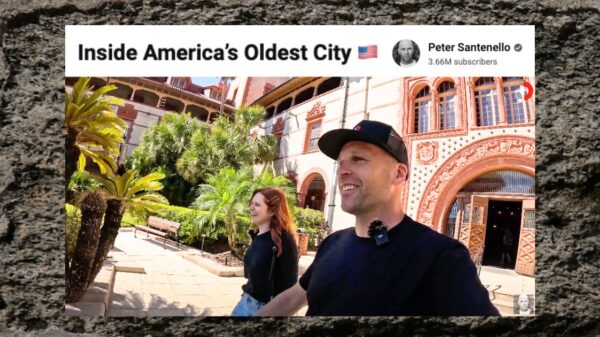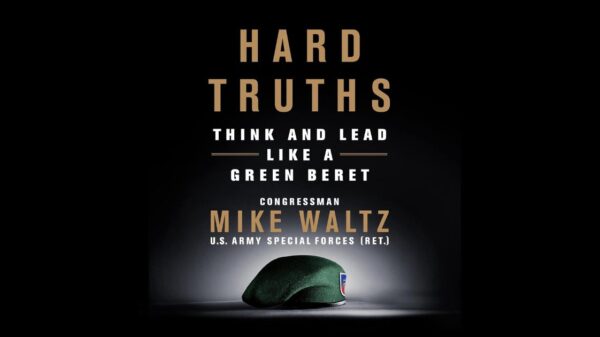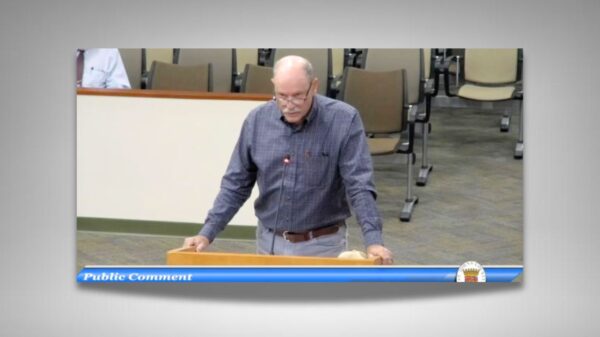While the Civil War ranks as one of the most examined areas of American history, Florida’s role in that conflict remains largely untouched. In a new book, Zack Waters, an attorney and former professor who has written several books on the Civil War, expanded our knowledge of Florida’s role in it.
Mercer University Press recently published Waters’ A Wilderness of Destruction: Confederate Guerrillas in East and South Florida, 1861-1865 and Florida Daily interviewed him about the new book.
Florida Daily (FD): While there have been a few accounts of the Civil War in Florida, they often focus on the Olustee campaign and the northern part of the state. Besides touching on North Florida and Olustee, you also brought in other parts of the state, including New Smyrna Beach, Tampa Bay, and Cedar Key. By expanding your focus, what insights did you gain? What challenges did you face?
Zach Waters (ZW): I found it difficult to write the Florida guerrilla book because to present a true picture of my home state from 1861-1865, I literally had to study each county separately. I did not want to simply re-hash information previously published. Luckily, I was aided by a number of friends and researchers (and a very understanding wife) who supplied obscure materials and pointed me to long-forgotten material.
In an earlier book, A Small but Spartan Band: The Florida Brigade in Lee’s Army of Northern Virginia (University of Alabama Press), I encountered a lot less difficulty in researching because each commander was required to submit a report to the commanding general. I can only recall very few official reports by Confederate units regarding the Florida guerrillas’ campaigns.
Two other facts quickly became obvious in my initial research. First was how deeply divided the white population was following secession. The majority of Floridians seemingly favored secession: a minority were willing to fight for the Union; while a number simply wanted to be left alone. (When “push came to shove,” those people usually reluctantly sided with the Confederacy.)
Another observation was the vital role of African-Americans in Florida’s Civil War. The Black soldiers are often “written off” as a vital part of the war effort, but they fought in numerous operations, from skirmishes south of Tampa to the Battle of Olustee. For freedom, the Black troops ignored the fact that the U.S. army treated them as “second-class” soldiers; the execution of an African-American soldier near Jacksonville for protesting lower wages paid to USCT soldiers.is an excellent example. On a more positive note, the commander of an 1865 raid into eastern Marion County, was an African-American sergeant. Had the war continued, it is possible that Colored troops would have played a more important leadership role.
FD: John Milton served as governor of Florida for most of the Civil War. Unlike some Confederate governors–I’m thinking of Joseph Brown in Georgia and, to a lesser extent, Zebulon Vance in North Carolina–Milton is usually portrayed as an ally to Jefferson Davis, even as Richmond largely abandoned Florida. What role did Milton and the state government in Tallahassee play in helping local units across Florida hold off Union forces?
ZW: I have always believed that Gov. John Milton was a true Southern patriot who made the best of an untenable situation. It is easy for modern writers to make fun of Milton. He truly wanted to fight (on a battlefield – not in the halls of government) for his state. He got his chance at the Battle of Natural Bridge, without any historic results. He cooperated with the Jefferson Davis government, meeting each requisition with the units requested; he found a way to keep Florida beef flowing to the Army of Northern Virginia and the Army of Tennessee, and used partisan forces to protect his home state. All things considered, he did all that could be expected.
FD: You offered some great insights on salt’s role in Florida during the Civil War, especially in helping preserve food for other parts of the Confederacy. How important were salt and cattle from Florida in feeding the Confederate armies? How did the Union forces try to break the supply lines?
ZW: You ask how important salt and beef were to the Confederate war effort. The Rebel troops would not have lasted six months without salt and beef. The Federals realized this and wasted no time in attempting to shut down the flow of Florida beef. The Union commanders, however, never really understood Floridians or the state. In early 1862, they captured Nassau County and St. Augustine but never did much with their advantage except for occasional raids into the hinterlands. The Confederates were quite content to let them maintain their tenuous hold on the two enclaves, as long as they were content to leave the interior in Rebel hands.
FD: Florida and the Civil War remains a largely overlooked topic. Still, you were able to draw on both primary and secondary sources to offer one of the best books on the topic I’ve ever stumbled across. What areas should historians and writers focus on to provide more insights into Florida and the Civil War? What’s next for you? Are there any projects that you are currently working on?
ZW: I have lived in Rome, Georgia, for more than 40 years, and have co-written a book on the Cherokee Artillery, which was enrolled in Rome and fought with Nathan Bedford Forrest. It is entitled The Damnedest Set of Fellows: The Cherokee Artillery in Forrest’s Cavalry. I am now gathering information on a Confederate cavalry unit from northern Alabama, but I would love to undertake another Florida book.
Dr. Kevin Derby, the editor of Florida Daily and a professor at Divine Mercy University, conducted the interview. Derby, who did his master’s thesis and his doctoral dissertation on the Civil War, found Mr. Waters’ new book to be one of the most insightful works on Florida and the Civil War that he has ever read.




















